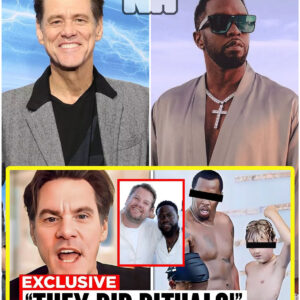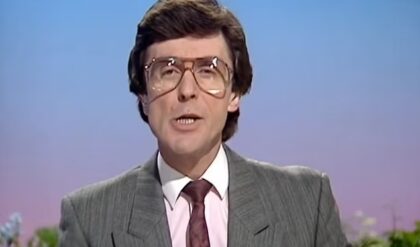Joe Rogan’s Reaction to Zuckerberg’s Admission of Hunter Biden Censorship: Analyzing Media Influence and Public Discourse
In a digital age dominated by social media platforms, the intersection of technology, censorship, and public discourse has become increasingly contentious. Recently, a significant moment captured the attention of both traditional and online media spheres: Mark Zuckerberg’s admission of Facebook’s decision to censor content related to Hunter Biden. This revelation unfolded during an interview with Joe Rogan, a prominent podcaster known for his candid discussions on a wide range of topics.
Mark Zuckerberg, CEO of Meta Platforms Inc., formerly known as Facebook, sat down with Joe Rogan in what was anticipated to be a revealing conversation about the role of social media in society. Rogan, known for his probing questions and unscripted style, created an environment conducive to candid discussion. As the interview progressed, Zuckerberg found himself addressing a topic that has been a focal point of controversy: content moderation and censorship.

Joe Rogan’s reaction to Zuckerberg’s admission was a blend of surprise, skepticism, and curiosity. Known for his skepticism toward authority and corporate influence, Rogan seized on the moment to delve deeper into the implications of such censorship. His response resonated with his audience, many of whom view him as a voice of authenticity in an era of scripted media interactions.
Rogan’s questioning reflected broader concerns about the power wielded by tech giants like Meta. He probed Zuckerberg on whether such actions were driven by political bias or a desire to manipulate public perception—a topic that has long been a point of contention among users and policymakers alike. By reacting in real-time to Zuckerberg’s statements, Rogan provided a platform for viewers to evaluate the implications of Facebook’s content moderation policies.
The conversation between Rogan and Zuckerberg underscored the evolving role of social media platforms as arbiters of information. In an era where digital platforms serve as primary sources of news for many, decisions about what is allowed to be shared or suppressed carry significant implications for public discourse. Zuckerberg’s acknowledgment of censorship practices raised questions about transparency, accountability, and the balance between free speech and responsible content management.
For media analysts and scholars, this moment provided valuable insights into the dynamics of power within the digital landscape. The influence of platforms like Facebook extends beyond mere content distribution; they shape narratives, influence public opinion, and potentially sway elections. Rogan’s role as an interviewer who challenges conventional narratives added depth to the discussion, encouraging viewers to critically assess the information they consume online.

Following the interview, reactions poured in from various quarters of society. Advocates for free speech expressed concerns about the potential for partisan bias in content moderation, arguing that tech companies should not wield unchecked power over public discourse. Conversely, proponents of stricter content guidelines welcomed Zuckerberg’s acknowledgment as a step toward combating misinformation and ensuring the integrity of online information.
Politically, the revelation had ripple effects. It reignited debates about the regulation of big tech and prompted renewed calls for legislative action to address concerns about digital monopolies and their influence on democratic processes. Lawmakers, already scrutinizing the practices of tech giants, seized on Zuckerberg’s statements as evidence of the need for stronger oversight and regulatory frameworks.
The media coverage surrounding Joe Rogan’s interview with Mark Zuckerberg highlighted the evolving dynamics of journalism in the digital age. Traditional outlets analyzed the implications of Zuckerberg’s admission through the lenses of ethics, media integrity, and the role of technology in democracy. Online discussions, fueled by Rogan’s substantial online following, reflected diverse perspectives on the responsibilities of tech platforms and the rights of users.
Public perception of Facebook and its subsidiaries, including Instagram and WhatsApp, was also shaped by the interview. Users and stakeholders alike weighed the benefits of interconnectedness and information accessibility against concerns about privacy, censorship, and corporate influence. Rogan’s platform provided a space for these nuanced discussions, contributing to a broader dialogue about the future of digital communication and its societal impact.
Joe Rogan’s interview style and platform have made him a significant figure in contemporary media. His ability to navigate complex issues with a mix of skepticism and open inquiry has resonated with millions of listeners and viewers worldwide. By engaging with Zuckerberg on topics ranging from censorship to corporate responsibility, Rogan demonstrated the potential of podcasting as a medium for substantive dialogue in an increasingly polarized media landscape.
Moreover, Rogan’s influence extends beyond the confines of traditional journalism. As a podcaster, he has leveraged his platform to host discussions with diverse voices, challenging mainstream narratives and fostering conversations that might otherwise be marginalized. His interview with Zuckerberg exemplified this approach, offering viewers an opportunity to hear directly from a key player in the tech industry on matters of public interest.
The interview between Joe Rogan and Mark Zuckerberg provided a window into the complex interplay between technology, media, and public discourse. Zuckerberg’s admission of Facebook’s censorship practices regarding Hunter Biden underscored broader concerns about corporate power and its impact on democracy. Joe Rogan’s reaction and commentary added depth to the discussion, prompting viewers to consider the ethical, legal, and societal implications of content moderation on digital platforms.
As discussions continue about the regulation of big tech and the future of online communication, Rogan’s role as a catalyst for meaningful dialogue remains pivotal. His willingness to challenge authority and explore contentious issues reflects a growing demand for transparency and accountability in the digital age. The interview serves as a reminder of the influential role that media personalities can play in shaping public opinion and promoting informed debate on critical issues facing society today.
In conclusion, Joe Rogan’s reaction to Mark Zuckerberg’s admission of censorship practices regarding Hunter Biden encapsulates the evolving landscape of media and technology. It underscores the need for ongoing scrutiny of digital platforms and their impact on democratic principles, while highlighting the potential of independent voices like Rogan’s to foster meaningful dialogue in an increasingly interconnected world.
News
(VIDEO) Jim Carrey EXPOSES His Horrifying Experience At Hollywood Elites Party..
Jim Carrey Reveals Shocking Experience at Hollywood Elite Party In the glitzy world of Hollywood, where red carpets and glamour abound, there lies a darker side that often remains hidden from the public eye. Recently, comedic legend Jim Carrey has…
(VIDEO) Bill Duke EXPOSES Tyler Perry’s DISGUSTING Rise To Fame (CENSORED)
Bill Duke Critiques Tyler Perry’s Controversial Path to Stardom In the realm of entertainment, few figures have sparked as much controversy and debate as Tyler Perry. Known for his prolific output in film, television, and theater, Perry has amassed a…
(VIDEO) Mel Gibson Slams On Oprah’s Secret Agenda In Relation To Sound Of Freedom
Mel Gibson’s Allegations Against Oprah Winfrey and “Sound of Freedom”: A Critical Analysis In recent media discourse, actor and filmmaker Mel Gibson has stirred controversy with his comments regarding Oprah Winfrey and her alleged agenda in relation to the movie…
(VIDEO) Patti Labelle Reveals Why Chaka Khan Is Clive Davis’ NEXT Target
Patti LaBelle Reveals Insights into Why Chaka Khan is Clive Davis’ Next Target In a surprising revelation that has captivated the music industry, legendary singer Patti LaBelle has shed light on what she perceives as music mogul Clive Davis’ next…
(VIDEO) Cardi B Leaks Offset’s And Quavo’s Fr3ak0ff With Saweetie?
Cardi B Allegedly Leaks Offset’s and Quavo’s Private Encounter with Saweetie: Unraveling the Controversy In a shocking turn of events, Cardi B has found herself at the center of a scandal involving her husband Offset and fellow rapper Quavo, allegedly…
(VIDEO) **Kevin Hart Freaks Out After 50 Cent Leaks Video Involving Him and Diddy**
Kevin Hart’s Shock and Fallout: The Aftermath of 50 Cent’s Alleged Video Leak Involving Him and Diddy In a stunning turn of events that has reverberated across Hollywood, Kevin Hart, the acclaimed comedian and actor, finds himself at the center…
End of content
No more pages to load











